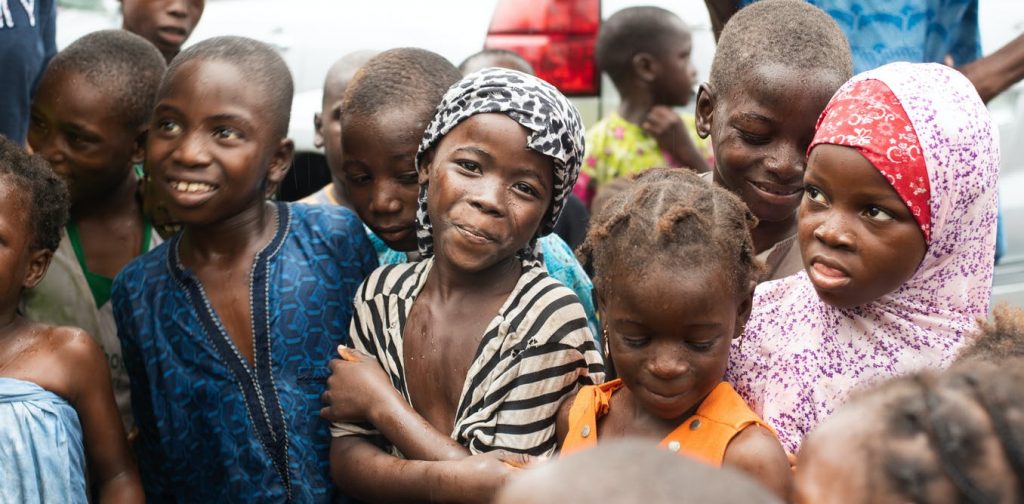Girl-Child: 78% Of Girls Marry Before 18 In Northern Nigeria—Report

Despite increase in activism against child marriage in Nigeria, Save the Children International says quicker action is needed to end the practice.
Northern Nigeria accounts for 78 per cent of girls who are married under the age of 18, according to new data by London-based child rights group, Save the Children International.
In a new report titled “State of the Nigerian Girl Report – An Incisive Diagnosis of Child Marriage” released on Thursday, Nov. 11, 44 per cent of girls in Nigeria are said to be married before their 18th birthday, one of the highest child marriage prevalence rates in the world.
The report said child marriage is more prevalent in the Northwest and Northeast Nigeria, where 48 per cent of girls are married before they turn 15 and 78 per cent were married before age 18.
According to the report, the percentage of young people aged 15 to 19 years who are currently married or in a union for women stood at 22.2 per cent while no man was in such a union. Women in this age bracket who are in a polygynous union for women accounted for 36.9 per cent while men accounted for 18.7 per cent.
It found that early child marriage affects women and girls than men and boys, 65 per cent of fathers, mothers, and mothers-in-law approving of child early forced marriage (CEFM).
In a statement by Kunle Olawoyin, the group’s spokesperson in Nigeria, Save the Children International Nigeria said forced early child marriage is a human rights violation and a form of gender-based violence (GBV) that robs children of their ability to make “decisions about their lives, disrupts their education, subject them to become more vulnerable to violence and discrimination, and prevents their full participation in economic, political, and social spheres.”
According to the report, factors contributing to the prevalence include Child Early Forced Marriage (CEFM) prevalence and endemic poverty, poor education outcomes, school dropout rates, a high rate of out-of-school children, and poor access to basic social, economic and healthcare services.
“Despite the Compulsory Free and Universal Basic Education Act of 2004, lack of access to quality, free, safe, uninterrupted and inclusive education for girls remains a big driver of child marriage,” the report noted.
Nigeria has over 10 million children driven out of school who are mostly concentrated in 13 states of the Northeast and Northwest regions, battered by mounting insecurity and widespread poverty.
Maryam Ahmed, Save the Children International Nigeria’s Youth Ambassador said children, especially girls, are among the most affected by poverty in Nigeria and child marriage is widely considered as a way out of poverty.
“Childhood poverty affects their capacity to attain full potential. Families of the poor and vulnerable must be provided with social safety nets to support education of the girl-child,” Ahmed.
“It is one of the most effective ways to lift up the girl child out of poverty. Social protection services, livelihoods and economic independence contribute to delaying early child and forced marriage.”
Additionally, being out of school and forced into an early marriage robs the girl-child of her childhood and opportunities to realize her full potential, according to Purity Oriaifo, Save the Children International Nigeria’s Girl Champion.
“She has an increased risk of poor health outcomes, having children at a younger age, dropping out of school, experiencing ongoing violence in the home, being restricted in her mobility, left with limited decision-making ability, and earning less over her lifetime,” Oriaifo said.
Other Staggering Data
According to the report, 89.13 per cent of women aged between 15 and 49 were first married before age 15 in Borno State—59 per cent of them had no education whatsoever; 42 per cent had some level of primary school education and 100 per cent had no secondary school education.
In addition, 46 per cent of women who are in a marital relationship or union have spouses who are older by 10 years or more.
In Jigawa State, 78 per cent of women, aged between 20 and 49 were first married before age 18 while 25 per cent of women aged 15 and 19 are presently married or in a union. Those who dropped out of school to marry account for 63 per cent of women.
While only 8 per cent of women who married before age 18 are gainfully employed and earn above the NBS 2020 national poverty line.
Meanwhile, Save the Children called for the provision and the full implementation of policies and strategies to end child marriage including the ratification of the Child Rights Act (2003).
“This will provide children with the necessary legal policy framework for seeking justice when their rights are denied or abused,” the group said.
Ten states yet to domesticate the Child Rights Act include Kebbi, Kano, Katsina, Jigawa, Zamfara, Yobe, Gombe, Borno and Adamawa.

